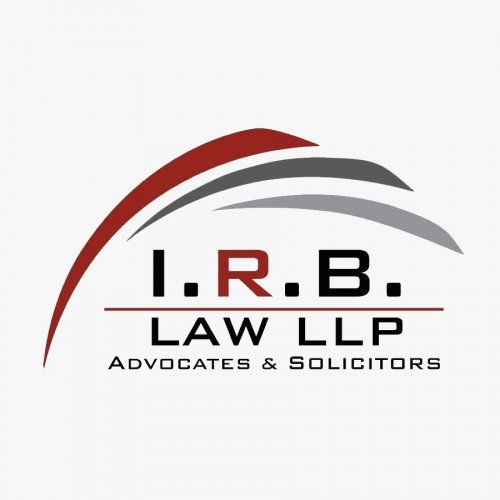Best Private Client Lawyers in Singapore
Share your needs with us, get contacted by law firms.
Free. Takes 2 min.
Or refine your search by selecting a city:
List of the best lawyers in Singapore
About Private Client Law in Singapore
Private client law in Singapore concerns the personal legal needs of individuals and families rather than businesses or corporations. It covers areas such as estate planning, wills, trusts, probate, succession, mental capacity issues, and asset protection. The goal is to help clients manage, transfer, and protect their wealth during their lifetime and after death, following Singapore’s legal framework. Private client lawyers assist with creating legal documents, ensuring regulatory compliance, resolving disputes, and providing advice on complex personal and family matters.
Why You May Need a Lawyer
Private client lawyers in Singapore provide crucial legal guidance in various situations, including:
- Drafting a will to ensure your assets are distributed according to your wishes
- Setting up trusts for children, family members with special needs, or charitable purposes
- Applying for probate or letters of administration after a loved one passes away
- Advising on inheritance and succession laws, especially for blended families or foreign assets
- Protecting family wealth or business interests
- Addressing mental capacity concerns, such as the LPA (Lasting Power of Attorney)
- Resolving disputes between beneficiaries or family members
- Assisting with tax planning and asset protection strategies
Local Laws Overview
Singapore’s private client sector is governed by a combination of statutes and common law principles. Key pieces of legislation include the Wills Act, Intestate Succession Act, Probate and Administration Act, Trustees Act, and the Mental Capacity Act. Singapore allows individuals significant freedom to dispose of their assets through a will, but intestate succession rules will apply if someone dies without one. Trusts are commonly used for asset protection, tax efficiency, and family arrangements. The Mental Capacity Act allows individuals to appoint trusted persons to make decisions on their behalf if they lose mental capacity. Taxation in Singapore is relatively favorable, with no estate or inheritance tax, though stamp duty and other taxes may still apply.
Frequently Asked Questions
What happens if I die without a will in Singapore?
If you die without a will, your estate will be distributed according to the Intestate Succession Act. This law sets out a fixed order for distributing assets among surviving relatives, which may not reflect your personal wishes.
Who can make a will in Singapore?
Anyone aged 21 and above, of sound mind, can make a will in Singapore. The will must be in writing and signed in the presence of two witnesses who are not beneficiaries.
What is probate and why is it necessary?
Probate is the legal process of validating a deceased person’s will and giving the executor authority to manage and distribute the estate. It is necessary to ensure the assets are transferred lawfully and to provide protection to the estate’s executor.
What if my family has assets overseas?
Managing cross-border assets can be complex. A Singapore lawyer can work with lawyers in other countries to help you plan an estate that addresses all jurisdictions, helps avoid conflicts, and ensures proper distribution.
Can foreigners create wills or trusts in Singapore?
Yes, foreigners can create wills or trusts relating to their local assets in Singapore, subject to legal and tax considerations of both Singapore and their home countries. Legal advice is essential for cross-border arrangements.
What is a Lasting Power of Attorney (LPA) and why should I make one?
An LPA is a legal document allowing you to appoint someone to make decisions about your personal welfare and property if you lose mental capacity in the future. It is advisable for those who want to ensure their interests are looked after if they become unable to manage affairs.
How do trusts work in Singapore?
A trust lets you transfer assets to a trustee to hold and manage for beneficiaries, according to the terms you set. Trusts are often used for succession planning, tax efficiency, asset protection, or supporting family members with special needs.
Are there inheritance or estate taxes in Singapore?
No, Singapore does not impose inheritance or estate taxes. However, there may be tax considerations related to income, stamp duty, or international tax implications for foreign assets or beneficiaries.
What can I do if I think a will is invalid or unfair?
You can contest a will on grounds such as lack of mental capacity, undue influence, fraud, or improper execution. A lawyer experienced in estate disputes can advise on your options and the chances of a successful challenge.
How can I ensure my dependents are cared for after my death?
Proper estate planning with a lawyer can help you establish wills and trusts, appoint guardians for minor children, and put assets under professional management to ensure your dependents’ needs are met according to your wishes.
Additional Resources
For further information and assistance, you may approach the following organizations and bodies:
- Office of the Public Guardian Singapore: For information on Lasting Power of Attorney and the Mental Capacity Act
- Public Trustee’s Office: For unclaimed monies, small estates, and administrating estates without a will
- Law Society of Singapore: Directory of lawyers and referral services
- Singapore Courts: Probate, administration, and related processes
- Institute of Singapore Chartered Accountants: For tax considerations and advice on estate planning
Next Steps
If you require legal assistance in a private client matter in Singapore, consider these steps:
- Write down your objectives, concerns, and a list of your assets and dependents
- Gather all relevant documents, such as existing wills, trust deeds, or property titles
- Research and contact a qualified private client lawyer with expertise in your area of concern
- Book an initial consultation to discuss your situation confidentially
- Ask about the lawyer’s fees, their approach, and the likely outcomes
- Act promptly, especially if a loved one has recently passed away, or if there are disputes
- Consider involving trusted family members in the process if appropriate
Proper legal advice can bring peace of mind, safeguard your intentions, and protect your loved ones’ future.
Lawzana helps you find the best lawyers and law firms in Singapore through a curated and pre-screened list of qualified legal professionals. Our platform offers rankings and detailed profiles of attorneys and law firms, allowing you to compare based on practice areas, including Private Client, experience, and client feedback.
Each profile includes a description of the firm's areas of practice, client reviews, team members and partners, year of establishment, spoken languages, office locations, contact information, social media presence, and any published articles or resources. Most firms on our platform speak English and are experienced in both local and international legal matters.
Get a quote from top-rated law firms in Singapore — quickly, securely, and without unnecessary hassle.
Disclaimer:
The information provided on this page is for general informational purposes only and does not constitute legal advice. While we strive to ensure the accuracy and relevance of the content, legal information may change over time, and interpretations of the law can vary. You should always consult with a qualified legal professional for advice specific to your situation.
We disclaim all liability for actions taken or not taken based on the content of this page. If you believe any information is incorrect or outdated, please contact us, and we will review and update it where appropriate.
Browse private client law firms by service in Singapore
Singapore Attorneys in related practice areas.
Browse private client law firms by city in Singapore
Refine your search by selecting a city.















